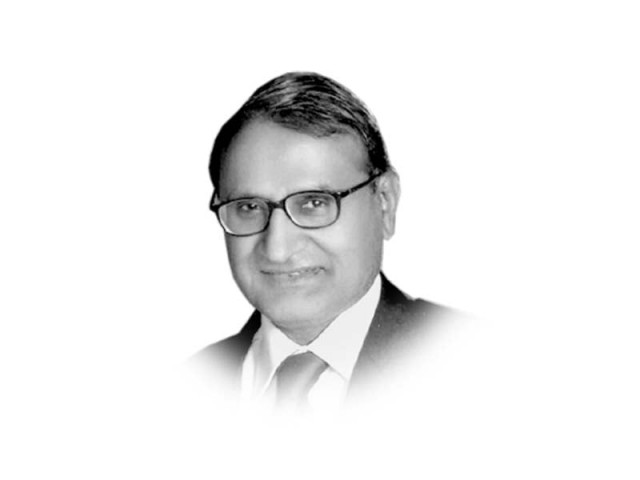A conversation on riba
Thinking deeper about the system as a whole, if there is no inflation, the necessity for interest does not arise

Last week, the Press Council of International Affairs (PCIA), a think platform convened by veteran journalist Asadullah Ghalib, organised a conversation in Lahore on riba. It was hosted by a realtor, Iftikhar Sindhu, who had challenged the “antis” in the first place in the WhatsApp substitute forced by the current pandemic. Farid Paracha, one of the petitioners at the Shariat Court for the implementation of the decades-old ruling to eliminate riba, traced the history of official intransigence. He quoted from the Quaid’s speech at the inauguration of the State Bank, the Objectives Resolution and Article 38F of the 1973 Constitution. Ather Waheed opined that the unimplemented judgments by the Shariat and Supreme Courts sorted out nearly all contentious issues. All that remained was the political will to eliminate. Paracha also informed that the Shariat Court hearing was fixed for November 30, though he did not sound optimistic about the outcome. The lawyers from the State Bank were said to be past masters in dilatory tactics. Before this, a former deputy governor of the State Bank, Saeed Ahmad, had sent a written response to the convenor’s teaser that he was specially brought from abroad by the Nawaz-Dar duo to bid final farewell to riba. He did admit having chaired a committee and also that one of the committees, Taqi Usmani, was made head of the Shariah Board at the State Bank, but shied away from owning the larger mandate alluded to him by Ghalib. Mujib Shami, a firebrand of the late 60s and early 70s, took a pragmatic view. Islamic banking was gradually expanding its footprint in the market, and the State Bank was right in guiding it as a long-term transition. A surgical operation could be disruptive. But the firebrand of the 2020s, Oria Maqbool, would want it yesterday. His long career in bureaucracy seems to have made him weary of anything evolutionary. He saw nothing disruptive in a zero-interest economy, quoting the example of Japan and other economies.
This was a relevant point of intervention by the only practitioner of the doctrine of mammon, this scribe, present there. Interest rate in Western economies is an instrument of policy as well as an important indicator. Keynes, the greatest economist of the 20th century, observed that the economies were driven by the expectations of profit by real investors, whatever the interest rate. If the expected rate of return is higher than the interest rate, there will be an upturn. Interest rate in some five Western economies is zero, even negative, to encourage real investors whose expectations of profits are very low. Interest rates are likely to rise to contain inflation once the economies pick up. Entrepreneurs, driven by “animal spirits” turned the economy round, not the rentiers making unearned incomes. From the Quranic verse recited beautifully by Ghalib’s son to open the session, it was clear that the Quran wants people to earn their income from trade, not to enjoy unearned income from interest or any other source. In this scenario, rent from land is also an unearned income. But the same Shariat Court declared land reform un-Islamic and appeals against this judgment too have been pending for decades. Thinking deeper about the system as a whole, if there is no inflation, the necessity for interest does not arise. Islamic scholars and their economic fellow travellers have to think hard to build the analytical foundations of an economic system based on zero inflation and zero unearned incomes. Some call it the end of exploitation. But that’s another story.
Published in The Express Tribune, February 19th, 2021.
Like Opinion & Editorial on Facebook, follow @ETOpEd on Twitter to receive all updates on all our daily pieces.













COMMENTS
Comments are moderated and generally will be posted if they are on-topic and not abusive.
For more information, please see our Comments FAQ